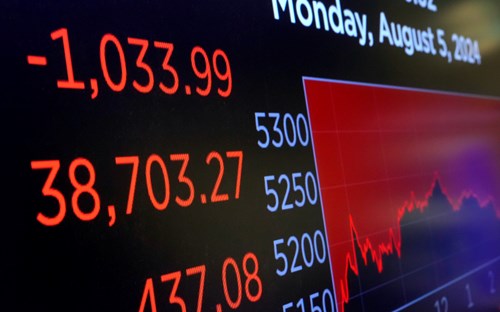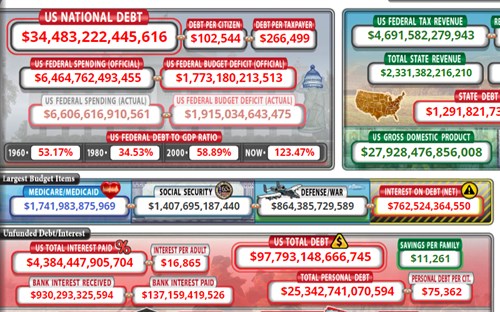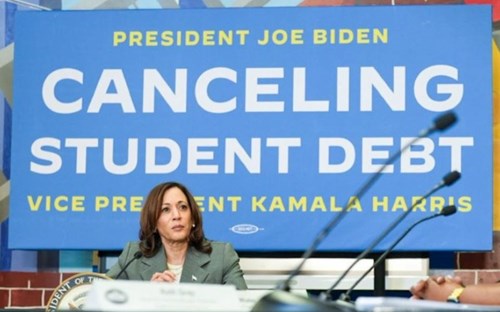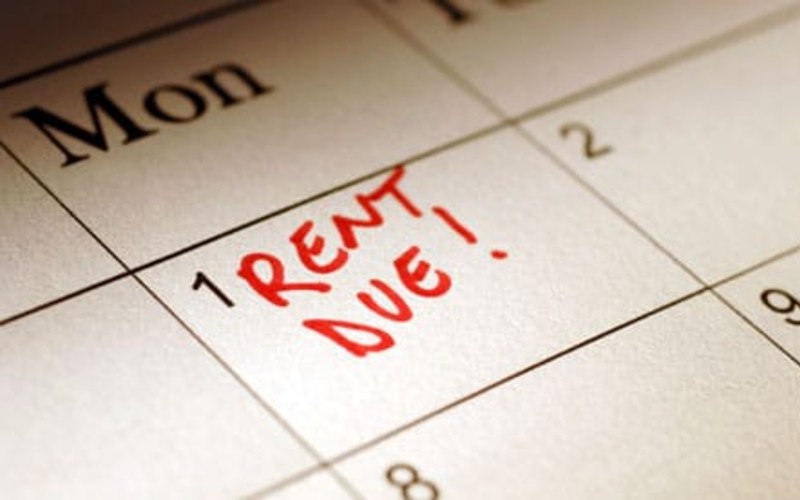The selloffs of Friday and Monday should be considered a “very normal thing," says economist Kevin Freeman, "but we are in a very dire long-term fiscal position."
That is because many people know our country is $35 trillion in debt, Freeman, host of American Family Radio podcast "Pirate Money Radio", said Tuesday.
U.S. stocks tanked because the Japanese Yen strengthened against the dollar. Investors became risk-averse and scattered to safety wherever they might find it, Freeman told AFR show host Jenna Ellis.
“They started doing what's known as a risk-off decision. I don't want to take any risk. Get me out of anything, whether it's Bitcoin, whether it's gold, whether it's whatever stocks. They rushed out of those and went into cash, and that caused a minor hiccup that some people are interpreting as the end of the world, and other people are just saying it’s normal stock market activity,” Freeman said. “My concern is the longer-term fiscal position we’re in.”
 In the early afternoon on Tuesday, the Dow was up more than 550 points. The NASDAQ and S&P 500 were also showing big gains.
In the early afternoon on Tuesday, the Dow was up more than 550 points. The NASDAQ and S&P 500 were also showing big gains.
Other nations, though, have long noticed that suspect financial foundation.
The collaborating BRICS countries – Brazil, Russia, Indian, China and South Africa – keep adding allies to challenge the U.S. dollar’s influence as the world's reserve currency in international trade and finance.
BRICS leaders have discussed using their own currencies more frequently than the dollar in trade and finance.
Some observers have expressed skepticism about the feasibility of a BRICS common currency, citing the lack of political stability and economic cohesion among member states.
According to data from the International Monetary Fund, the dollar remains the dominant reserve currency with almost 60 percent of global currency reserves held in U.S. dollars in 2022.
Even if recent market events are only simple corrections, Kamala Harris still owns the economy as Joe Biden’s vice president.
It will be her job to convince Americans that things are better than their pocketbooks tell them.
“The economy’s going to hang around her neck like an albatross,” Freeman said.
An AP-NORC poll preceding the Biden-Trump debate in June found that only four in 10 Americans approved of Biden’s handling of the economy.
GOP Strategists: Focus on the economy
GOP strategists would like to see Donald Trump spend more time on Harris’ wobbly economic record and less on her racial identity.
Freeman agrees.
“It is the Biden administration that's claimed that the economy has been so robust and so good, but people are barely hanging on, and the prices have gone through the roof. They’re 20 percent higher based on official government statistics,” he said.
If voters simply look at their must-have goods and services they’ll see “30-40 percent inflation in the things they’re buying and needing,” Freeman said.
 Yet the employment picture has not improved. A weak July jobs report showed unemployment jump to 4.3 percent.
Yet the employment picture has not improved. A weak July jobs report showed unemployment jump to 4.3 percent.
“They're having to take second jobs. In many cases, you get laid off and you go back and you find partial work, or you're trying to start a business, or you're trying to do anything you can to scrap by and make it,” Freeman said.
People are living increasingly off government assistance, he said. The government has set itself up in a way that many more people are looking for the next round of help.
“A lot of people are really struggling in this economy, and they've been able to make ends meet because we threw $10 trillion of federal money into the economy, and we've hired a lot of people at the government level,” Freeman said.
Billionaire investor Warren Buffett unloaded half of his Apple stock during the second quarter of 2024. That brought him a profit of $84.2 billion and sent Apple’s stock tumbling.
Those aren’t the kind of moves the Harris campaign wants to see.
 “When you have almost 20 percent gains in a market for two-thirds of a year, people will take profits. When they do that causes corrections. Sometimes those corrections get worse and become bear markets,” Freeman said.
“When you have almost 20 percent gains in a market for two-thirds of a year, people will take profits. When they do that causes corrections. Sometimes those corrections get worse and become bear markets,” Freeman said.
Buffett’s moves still shouldn’t cause Harris too much angst. The angst will come if she has the chance to implement her policies.
“It’s very likely that August-October is a rough patch for the market. It’s a normal thing, but in the long run, we have serious economic problems,” Freeman said.
The economy needs more “freedom-loving policies" and less regulation, and lower taxes.
“The Harris team has said they want to raise corporate taxes. They’re going to let the Trump tax cuts expire. If they do that, we’ll see American companies leave. We’ll see unemployment go up, stock market returns go down. There will be bad economic outcomes in the longer run,” Freeman said.







